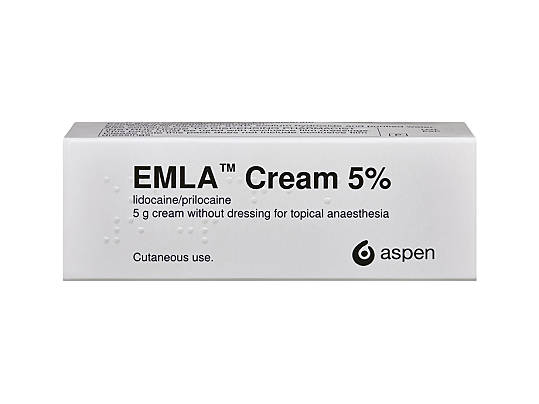Premature Ejaculation Treatment
Get premature ejaculation treatment and help control your climax.
Prices from £13.00
Simply fill in a brief consultation questionnaire and one of our doctors will review your request today.
Premature ejaculation is a common issue, affecting as many as 1 in 3 men. Reaching orgasm (coming) sooner than you or your partner would like can be frustrating and upsetting. Although studies show that partners tend to be less worried about premature ejaculation than those who experience it.
Initial remedies can include masturbating before intercourse, distraction methods, pelvic floor exercises, or wearing a condom. Alternatively, medical treatments include topical numbing creams or selective serotonin reuptake inhibitors (SSRIs).
Premature ejaculation treatments

Out of stock. Prices from £39.95

No results found.
Please check your spelling or try another treatment name.



Premature Ejaculation Treatment
-
-
Ejaculation is the release of semen from the penis, and usually happens when you orgasm. The process is controlled by the central nervous system. Your brain sends a signal to your reproductive organs, where the sperm moves from the testicles, combines with seminal fluid to make semen, and is ejected from the penis.
When it happens more quickly than a man and his partner would like, it’s referred to as premature ejaculation (also known as early ejaculation, premature climax, or rapid ejaculation). It’s often present alongside erectile dysfunction and is classed as a sexual dysfunction.
On average, men ejaculate after 5 and a half minutes of penetrative sexual intercourse. But this is very much an average as timing can range from 30 seconds to 30 minutes. International guidelines define premature ejaculation as coming within 1 minute of entering your partner.
Many men experience occasional bouts of premature ejaculation. However, if it’s persistent, affecting your sex life, or causing anxiety for you or your partner, then you may wish to seek treatment.
-
-
Psychological causes can include depression, stress, anxiety or relationship issues. More long term issues such as childhood trauma, a lack of confidence, or associating sexual activity with guilt can also play a part.
Alternatively, premature ejaculation can be a result of recreational drug use, alcohol misuse, low serotonin levels, or an over or under active thyroid gland.
Other physical causes can include diabetes (usually type 1 diabetes), a damaged spinal cord, multiple sclerosis, age, and bladder or prostate gland surgery.
-
-
If a man has experienced early climax since first becoming sexually active, this is known as primary premature ejaculation.
-
-
Primary premature ejaculation often has its roots in psychological causes; upbringing, trauma or conditioning. There can be a biological reason as some men’s penises are naturally more sensitive than others.
-
-
Behavioural techniques
There are some simple exercises that can help resolve the problem before opting for medical treatment.
Weak pelvic floor muscles can affect the time it takes to climax. You can become familiar with it by stopping peeing midstream. When you have a spare moment, tighten these muscles for three seconds, then let go. Repeat this a few times. Try to work up three sets of ten repetitions a day. These are known as Kegel exercises.
Try the stop and start technique, where you or your partner stimulates you to the point of climax. When you are about to come, pause and draw back from your orgasm. Repeat this three times, and complete the method a few times a week to build up your control.
The squeeze technique is similar, but after masturbating to near climax, either you or your partner squeezes the head of your penis, at the point where the head joins the shaft, for 10 to 20 seconds. The urge to ejaculate will subside, at which point you start again. Repeat 3 times, and complete the method a few times a week to help build resilience.
Other physical techniques include masturbating an hour or two before sex, using a condom in order to lessen sensation, or to have sex in a position that allows your partner to slow things down more readily.
Sex Therapy
If you suspect your condition may be caused by stress, performance anxiety, or worries related to relationships or sex, counselling can be an effective tool to help delay ejaculation. Sessions are available on the NHS, or you may choose to pay privately. The counselling service Relate also offers sex and behavioural therapy.
The approach will involve you, and perhaps your sexual partner, speaking to a non-judgemental sex therapist about ways to resolve the problem, and identifying any deeper, underlying causes. Premature ejaculation can cause or be caused by relationship issues, so talking therapies are often helpful. Sex therapists are well versed in ejaculation problems, and can also outline physical techniques that might be used to help delay ejaculation.
SSRIs
Some serotonin reuptake inhibitor (SSRI) antidepressants such as paroxetine, sertraline and fluoxetine delay ejaculation and can be prescribed to treat premature ejaculation. You will be expected to take a course, and the full effects should be noticeable in 1 or 2 weeks. SSRIs can also tackle depression, another root cause of premature ejaculation.
Priligy, or dapoxetine, is a prescription-only selective serotonin reuptake inhibitor (SSRI) developed for treating PE. It acts much faster than those mentioned above, and should be taken only when required, but not more than once a day. It is not recommended for those with heart, kidney or liver problems and can interact with other medicines. You will need to speak to a doctor or healthcare professional to get a prescription.
EMLA
EMLA is a topical numbing or anaesthetic cream, which is available over the counter, and works by desensitising the penis. It should be applied to the head of the penis and shaft up to 30 minutes before sex. It should be washed off after it has decreased sensation in the penis, in order to avoid loss of erection and to prevent numbness affecting your partner. Anaesthetic creams can be most effective when used with a condom. Other anaesthetic treatments include lidocaine or prilocaine sprays, also available over the counter.
-
-
The NHS recommends that you first try treating premature ejaculation using behavioural therapy techniques or counselling if appropriate, before seeking medical advice. Therapies and prescription or over the counter drugs can be used independently, but are also successfully used in conjunction.
-
-
Premature ejaculation can be effectively managed using the treatment best suited to you. Many men find physical techniques effective. For instance, Kegel exercises have been shown to help over 80% of people gain a degree of control over their ejaculation reflex. 50 to 60% of men also see an improvement when trying masturbation before intercourse. Behavioural therapy plus medication can prove a very effective combination, particularly for men with severe or lifelong symptoms.
-
-
Reassuringly, studies have shown that using one or more of the techniques outlined, 95 out of 100 men will recover from premature ejaculation.
-
-
Behavioural and physical techniques have no side effects. SSRIs may cause fatigue, nausea, headaches, dizziness, diarrhoea and sweating, but symptoms are generally mild and improve after a few weeks. Topical anaesthetics such as EMLA can cause redness, swelling, tingling and mild burning or itching.

Dr Babak Ashrafi Clinical Lead for Service Expansion
Accreditations: BSc, MBBS, MRCGP (2008)
Babak studied medicine at King’s College London and graduated in 2003, having also gained a bachelor’s degree in Physiology during his time there. He completed his general practice (GP) training in East London, where he worked for a number of years as a partner at a large inner-city GP practice. He completed the Royal College of GPs membership exam in 2007.
Meet our doctorsLast reviewed: 31 Jan 2022
-
Premature ejaculation - BAUS [Accessed January 2022]
-
Premature or rapid ejaculation - NIH [Accessed January 2022]
-
Ejaculation Problems - NHS [Accessed January 2022]
-
Can premature ejaculation be controlled? - NHS [Accessed January 2022]
-
Premature ejaculation - Mayo Clinic [Accessed January 2022]







